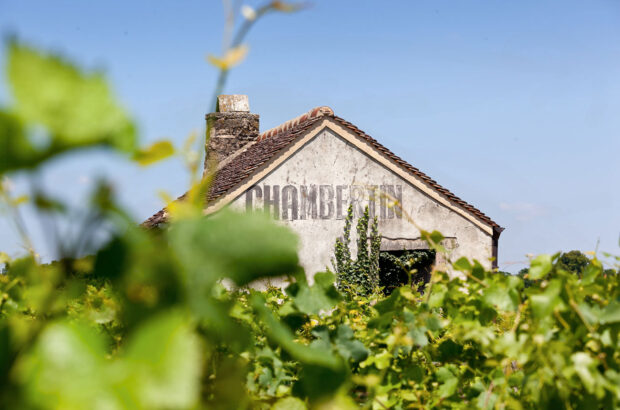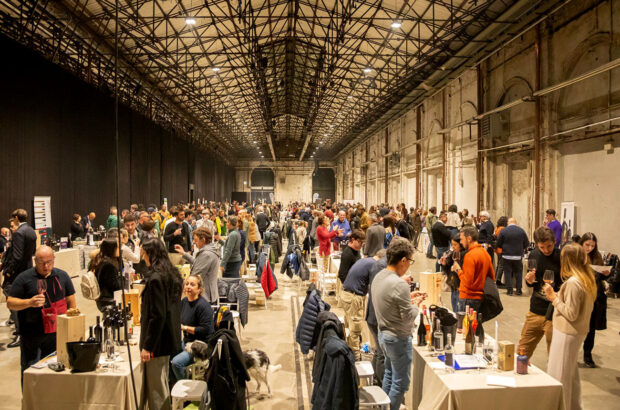Where is the Bordeaux market going and what are today's popular Bordeaux purchases? Natasha Hughes asked those in the know.
More on Bordeaux purchases…
Stephen Browett, Farr Vintners (UK) ‘For the average person who buys great wine, Bordeaux is still number one and our customers want what’s perceived to be the best in the world. If anything, we’re seeing less interest in cru bourgeois at the moment. Instead, people come to us to buy the big names of Bordeaux and those with great Parker scores. If you take the 2000 vintage firsts, they were probably the most overpriced wines in history but we were turning orders down – and there’s not been much change since.’
Michael Aaron, chairman, Sherry-Lehmann (US)
‘Parker-scored wines are becoming more and more important to the US Bordeaux market every year. What we are finding, though, is more resistance to the super-priced wines and it’s become harder to sell first growths. For every 10 people who were buying these a few years back, there’s a couple who are now looking further down the classification system. What is encouraging is that, despite the fact that restaurants rarely stock the wines, people are still buying Bordeaux wines, so on a retail level the business is still relatively healthy.’
Patrick Bernard, md, Millésima (France)
‘Bordeaux is like the little black dress: it may change from time to time – a bit shorter one year, a touch of lace the next – but it’s always in fashion. Having said that, since the economy crashed a bit, the big spenders have retreated a step. It used to be that the more expensive a wine was the better. These days, though there will always be people who have the money to fulfil their desires and buy first growths, most are not buying as much.’
Hugo Rose MW, Lay & Wheeler (UK) on Bordeaux purchases
‘What we’ve seen since the autumn, probably in reaction to world events, is a return to the tried and tested, to the classics. There’s been a swing away from the high-value wines of the New World, Spain and Italy, and back towards France and, in particular, Bordeaux. At present, customers are more reluctant to splash out on an unknown quantity, however strong the recommendation. And cru bourgeois is firmly back on the agenda because the reluctance to experiment goes hand in hand with the search for better value.’ Paul Milroy, Bordeaux buyer, Berry Bros (UK) ‘When you’re talking about the Bordeaux market at the moment, it all comes down to price, price, price. But there’s a big difference between the Parker-driven wines and petit châteaux or cru bourgeois that rate 87–88 points. They make very good wines, but they sell for a lot less, and some of our clients are looking there for value. Others are also still buying Bordeaux, but are buying back into the older vintages. We’re encouraging investors to buy Burgundy. You get wine of an equal quality, but it’s much cheaper – you’re looking at wines that sell for £400–£500 a case instead of £1,000.’
Nikos Antonakeas, md, Morrell & Co (US)
‘The American market has always had the attitude that if it’s not the best, it’s not worth buying. It’s not that there isn’t plenty of average-to-good wine sold at reasonable prices. It’s just that first growths are the super-luxury items of the wine world – the S-series Mercedes or Lamborghinis – and as long as there are wealthy people, there are those who will buy the wines. Most, though, are looking for seconds, thirds, fourths and fifths. It’s not a great market for cru bourgeois and the lesser Bordeaux wines, which is a shame because they are good value.’
https://www.decanter.com/wine-news/wine-fraudster-rudy-kurniawans-lamborghini-up-for-auction-279537/
Claire MacKenzie, Broking department, Justerini & Brooks (UK) on Bordeaux purchases
‘We had loads of interest in the 2000 vintage very early on, but this year we’ve only had a handful of phone calls so far. ‘What we’ve seen is that there is a lot of older stock still available at the original price and people are asking themselves whether it’s worth buying en primeur unless it’s exceptional. Generally, while there are always going to be those who want the firsts and super- seconds, we’re seeing growing demand for well-priced third, fourth and fifth growths. People are very interested in cru bourgeois, as long as there’s some assurance of quality.’
Iain Muggoch, fine wine buyer, Bibendum
‘One of the trends we have seen over the past few years is an increased demand for more Merlot-based wines, because of the riper tannins and cleaner fruit. Even on the Left Bank we’ve seen big increases in Merlot-based wines. ‘There’s also enormous demand for wines from past vintages at all levels – in particular 1982, 1990 and 1996. What happened was that after the prices for 2000 were released, older vintages didn’t look completely out of the ballpark. Cheval-Blanc 2000 was priced at £2,500 a case, while the 1982 sells for up to £4,800. The older vintage is a known quantity and, frankly, we can’t get enough of it.’
Mark Bedini, chairman, Fine & Rare Wines (UK) on Bordeaux purchases
‘The market for the 2001 en primeurs is hard to predict, but the consensus seems to be that its success will be entirely down to price. Last year saw a new aspirational customer in the market; people who were buying en primeur for the first time. I believe they’ll follow on this year, especially at the level of the petit châteaux and the cru bourgeois. Having said that, we’ve also been selling no end of Rhône wines recently, as well as top-quality Italian and Spanish wines.’
https://www.decanter.com/learn/vintage-guides/bordeaux-vintage-guide/bordeaux-2001-51246/
Christian Navarro, partner, Wally’s Wines & Spirits (US)
‘The quality of the 2000 vintage, even at the lower end, was so high that those who normally buy first and second growths are now looking at lesser wines. These are still good value, even compared to some Californian Cabernets. I think some of these buyers are going to keep on buying the 2001 vintage because I think they’ll provide value for money. Others are looking in other areas – the 2000 Rhônes are stunning, for example, and there are also incredible wines from Southern Italy that are very popular right now.’







